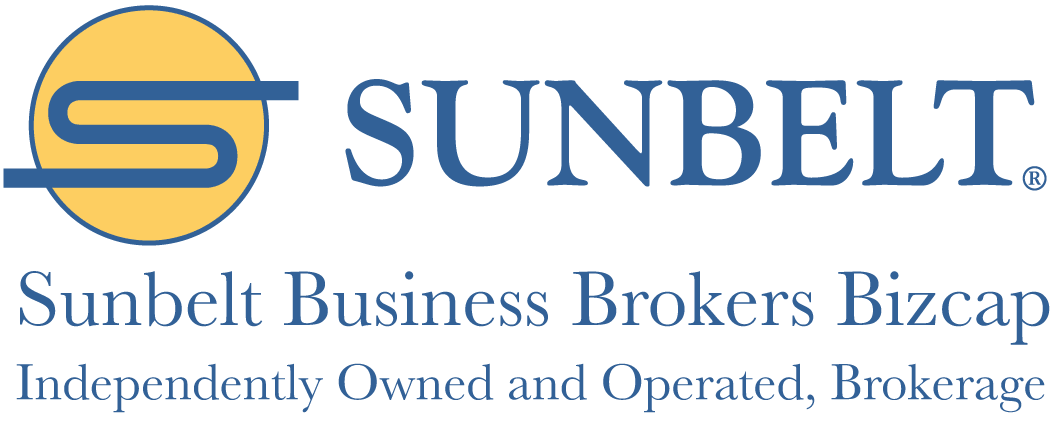
How to Buy a Business
When considering how to buy a business, it is important to know that you should be looking for a business that suits your needs, personality, skills, experience, education, hobbies, interests, as well as your access to capital and it should produce enough income to maintain your lifestyle while repaying any debt that was incurred to make the purchase.
We will guide you through your purchase with a proven process and help you make the right choices, to find a business that is right for you.
You will likely have some or all of the following questions. What is a good business for me? What businesses can I afford to buy? Will this business provide the income I need to support my life? Which type of business will I enjoy owning? Will the business bring a strong ROI – Return on Investment? What is the best way to finance the purchase?
We will help to answer all of those questions and more. Please Contact our office to learn more about how we can help you.

The Steps to Buy a Business That is Right for You
Seeing as you are exploring the possibility of owning a business, now is the best time to learn how to buy a business that is right for you. Like so many entrepreneurs before you, this may be your first time purchasing a business, it is exciting and will change your life.
Please explore the Q&A section below and Contact Sunbelt Kingston office for some experienced guidance, to help you on your life changing journey.
We invite you to take your understanding of how to buy a business to the next level by downloading our e-book Insider Tips for Buying a Business in Canada.
We wish you the best of luck!
Is the idea of owning your own business exciting? Does being your own boss sound appealing? Are you ready to turn your dreams into reality while creating your own financial independence, security?
It’s a big decision! The decision to buy a business is not one to be taken lightly. It involves serious personal evaluation, planning, strategic thinking and a wide range of financial, legal, tax, lifestyle and emotional considerations that can be quite perplexing.
To get started, consider your own personal goals related to buying a business:
- Do your strategic, personal, and financial planning before getting started
- Soul searching is essential to determine exactly what your goals are in buying a business, and what you really want to achieve
- Carefully consider what the implications will be on your lifestyle and family
- Be certain that you and your family are prepared to make the sacrifices and take the risks required to be a successful entrepreneur and be able to maintain your passion for the long haul
- You will need to understand your abilities (limits), tolerance for risk
What size and type of business will work for you? This depends, to some extent, on your experience, financial resources, lifestyle aspirations, skills and family support.
But more than anything else, it depends on what you enjoy doing. Imagine a day as the owner of a business. What do you spend the day doing? With whom do you interact?
Once you have determined your own wishes in buying a business, the search begins. View the Businesses for Sale and consider if one of those businesses would be a great place to exercise your passion, could it provide the lifestyle you want, and is it a business where your skill set can flourish?
An experienced Business Broker can help identify the right business for you. A great way to start this journey is to Contact our office, to set up a meeting.
At this point it is good to understand the process involved when buying a business. This is a brief outline and for greater detail please read Insider Tips of Buying a Business in Canada for more information.
When you first meet with your Business Broker, they will ask you to sign a confidentiality agreement. Confidentiality is critically important when buying a business, as business owners’ vigorously guard their company’s financial and operational secrets, to ensure their continued success. Should it become public knowledge that a business is for sale, it can significantly impact the staffing, customer retention, sales and overall value of the business.
To identify the right business opportunity for you, you will need to know your goals, aspirations, financial resources, skills and experience that you can transfer, devote to a new business.
Once you have selected a business that you feel would be a good fit, you will be provided with detailed information about the opportunity. After reviewing this document, you should know if this business is right for you. If that is the case, advise your Business Broker of your intentions and of any remaining questions that you have.
Depending on the nature of the business, we might ask you to undertake a “mystery shopper” experience. So that you can experience the business from the point of view of a first time customer and to see what, if any, changes you might make should you become the next owner of the business.
The next step will be to arrange a meeting with the owner so both of you are able to get to know one another, to establish a level of trust, in hopes that you could work together to make a deal happen and after closing, to ensure a successful transition.
After this meeting, we will take some time to evaluate the possibilities and concerns you might have, and look to answer the following, ‘Is this a business in which you are prepared to invest further time and effort investigating?’
At this stage, your Business Broker should give you a sample offer to purchase, for review along with detailed financial information about the business. If you feel this is the right opportunity, take action as there are other buyers looking for quality businesses. Meet with your Business Broker to develop a non-binding, highly contingent offer to purchase that is acceptable to you.
The goal now is to determine if, based on the supplied information, you can come to a set of terms that both you and the owner can agree to. Do not waste your time and money on lawyers and accountants at this point in the process. The offer is completely non-binding and any deposit that will accompany the offer is refundable. So, if you cannot come to terms now, there will be no deal and you will have saved substantially on the cost of legal and accounting advice as they will bill you for their time, no matter the outcome of the negotiations. If you do come to terms, your accounting and legal advisers will become involved in the diligence process and in drafting the final documentation for the sale. If you are not working with such advisors, your Business Broker can recommend qualified professionals to assist in this.
By now you have identified a great business and understand that there is no such thing as “the perfect business” and that you will never have enough information to feel 100% confident about your choice. You have decided that it is time to make a conditional, non-binding offer to purchase the business. Yes, now… before due diligence.
There is no point in wasting your time, money and energy conducting diligence on a business prior to reaching a reasonable agreement on the purchase price, conditions and terms, closing date, training and transition program, vendor financing, security, and clarifying any assets being conveyed and other significant issues.
What goes into an offer? The offer will:
- State the purchase price you are prepared to offer
- Specify how and when the purchase price is to be paid and under what conditions
- Recommend a date for closing, with conditions, terms and their respective timelines to be met before closing (and perhaps some for after closing)
- Set out expectations for the Seller’s responsibilities after closing – such as training and transition support for you or the terms for their continuing employment
Your Business Broker will ensure that you are protected and the offer will be conditional upon structuring the transaction and drafting an agreement of purchase and sale in a manner that is acceptable to both parties and their legal advisers. The offer will also be conditional upon obtaining financing on terms that are acceptable to you, and upon successful completion of financial diligence, operational diligence, market diligence, legal diligence, and etcetera, to your satisfaction.
Buyers usually prefer to purchase the assets of the business – intellectual property, the right to use the name, telephone number, and websites in addition to all of the tangible assets – vehicles, machinery, office and shop equipment, tools, inventory, and etcetera. If we can successfully negotiate the purchase of the assets at market value, you may be able to achieve a greater depreciation expense going forward which would reduce the taxes you would pay in future years.
If you were to purchase the shares rather than assets, you would inherit liabilities of the business as well. The following are but a few examples of such liabilities. An audit of the last few year’s tax returns and financials may result in a liability to Revenue Canada. A previous employee may sue the company for wrongful dismissal or for an injury sustained on the job. There may also be product liability issues.
For your reassurance, we will provide you with a copy of the Seller’s Disclosure Statement, where the Seller has identified, to the best of their knowledge when the document was completed, any possible liability(s) that could affect the value of the business. Your Business Broker will be able to review this document with you, to answer any questions you may have.
Sellers’ tend to prefer a share purchase. Provided their business qualifies, this structure enables them to take advantage of the $892,218 (in 2021) life-time capital gains exemption and potentially save a significant amount of taxes triggered from the sale.
You may be prepared to accept the possibility of hidden liabilities if the Seller is prepared to provide sufficient financing for your purchase and we include a right of offset in the Seller’s financing note. To some extent this will depend upon the exposure and risk we are assuming. If the Seller has been conservative and meticulous in their record keeping and payment of taxes, you are in a position to negotiate the structure of the transaction. For instance, in return for you agreeing to accept a share structure, you may negotiate increased financing from the Seller and, perhaps, a lower price. This enables you to share in the benefit the Seller achieves through the tax savings of a share sale.
It is important to note that over 90% of the businesses that we have helped to sell, were completed as a share sale. Certainly there are more risks involved in a share vs an asset sale. However, sometimes there is no choice in the matter as the incorporated business may have contracts with its suppliers, customers and/or lenders that are not transferrable. Not to worry, our experience in these situations allows us to include conditions and terms in the offer to purchase that will protect your interests.
And let us not forget that buying any business, not matter how large or small, whether by an asset or share purchase, there are always risks.
We have now received a counteroffer and are into negotiations.
The negotiations will be conducted through your Business Broker – not directly between you and the Seller. The main reason for this, is that emotions can run high and tempers can flare, “Why can’t they understand what I’m trying to do here, I’m just trying to make this deal happen for both our sakes?” Seeing as there is a good chance that you and the Seller will need to work together after closing, sometimes for a couple years, it is better that such highly charged emotions are directed at your Business Broker vs the Seller, so that you can both work together after closing, without those negative emotions getting in the way. Your Business Broker will guide you through the process with experienced advice and impartial thought.
Everything is negotiable BUT our goal is to acquire a business based on price and terms that enables you to earn a sufficient income to support your family, and to service the debt incurred from buying the business, over a reasonable period of time, and to provide a reasonable return on your invested capital.
You must be prepared to walk away from the opportunity if we cannot negotiate terms that work for you.
Offers will be negotiated back and forth, several times. Each time, you will learn a little more about the Seller’s priorities and their concerns. Once you have reached an agreement, it is time to start the next phase, which includes planning due diligence and arranging financing.
We must now plan and execute a reasonably thorough analysis of the business and the information provided. Your goal is to identify any fatal flaws, verify that the information you were provided is reasonably accurate and confirm that this business will really work for you. Professional advisers can assist you with this process, known as due diligence.
A diligence plan will be provided by your broker and they will coordinate its execution, but it is your responsibility as the Buyer to be satisfied with the results.
You will likely want to have an accountant help verify cash flow, assets, liabilities, financial history, projections and review tax filings, associated risk, corporate structure and potential tax issues resulting from your purchase.
An experienced tax and transaction lawyer will advise you on the risks and the structuring of the transaction. They will also review the ownership and transferability of the physical and intellectual property.
You must confirm that the business can generate sufficient cash flow to 1) support you and your family, 2) service the debt to pay for the business, over a reasonable period of time, and 3) provide a return on our invested capital. If it the due diligence process reveals that the business is falling short of your objectives then you must have a vision of the changes you can make to ensure it meets these needs in the future.
The full due diligence list is longer and more detailed than discussed above, however you get a sense of the scope of work involved. The due diligence process can take anywhere from two weeks to six months or more, depending on the complexity and availability of documentation.
Keep in mind that there will always be some risks and that you are the Buyer -not your accountant or lawyer. Listen to their advice and that of your Business Broker but the final decision, for everything, is yours. We have rarely heard an accountant or a lawyer recommend that a Buyer proceed with an acquisition. Their job is to keep you from making a mistake or taking undue risk. The only way to avoid risk is to do nothing. You alone must decide if the risks are acceptable. Your Business Broker will work with your accountant and lawyer, to address their concerns as well.
Expect to feel Buyer’s remorse at least once during the process. It usually appears just before closing. You will be nervous about the cash flow, about the impact on your lifestyle and about your ability to successfully manage and grow the business. This is perfectly normal and part of a healthy process. Talk it through with your Business Broker, to ensure you are not seeing ghosts.
Likewise, the Seller will be experiencing Seller’s remorse around the same time. They will be nervous about your ability to successfully operate their business. They will be nervous about the change in their lifestyle and worried about the financing they are providing to you. They may find it emotionally difficult to let go of their “baby.” You Business Broker will touch base with the Seller to work through their concerns.
Your Business Broker will be there to calm your concerns as well as those of the Seller. Everyone’s goal is to make sure this is a successful win/win transaction.
Once you are satisfied that this business will work for you, your Business Broker will work with you and your lawyer on the legal diligence, which includes:
The Agreement of Purchase and Sale (drafted by your lawyer), the non-compete / non-solicitation agreement, training and transition agreement, the terms of the Seller financing note, as well as the title verification of the assets documents.
Through all of this, your Business Broker will work with you and your lawyer to manage any items that may create misunderstanding and impact the closing of the deal. It is important to work with a lawyer that is experienced in business transitions.
Through closing you may also be assuming a lease, if there is one, finalizing the financing for the purchase and operation of the business, and confirming assets and current inventory.
Expect some post-closing adjustments, these will be dealt with in about 45 days after closing, when you have received all of the invoices for services provided throughout the acquisition process.
Now you are ready to be the new owner of the business!
You also need to meet with the staff to advise them of the transfer of ownership and alleviate their fear of change. This is best done by the Seller there to introduce you. We have found that many employees are pleased at the change of ownership as they welcome the new possibilities for growth that you present them.
We do not recommend telling employees about the sale until after all of the agreed to conditions have been fulfilled, as close to closing as possible. Too many things can go wrong and you don’t want to have a fear of the unknown, lead some of the staff to find other employment. If your purchase is conditional on retaining key employees you would have to meet with them prior to closing. However, they would need to commit to keeping the pending transaction confidential.
Congratulations, you have just purchased a business! Your first goals are to:
- Learn as much as you can from the previous owner and the staff
- Build positive relationships with staff, suppliers and clients
- Understand the current systems and processes that drive the business
- Get acquainted with staff and consultants to understand their individual needs, strengths and preferences
Do not make significant changes in the business operations until you understand why things are being done as they are. This generally takes at least a few months.
At first glance, this may seem overwhelming. But you do not have to do them all at once. With quiet confidence, and getting something done each day, moves you in the right direction. And as you progress, over time, the pace will increase. It will seem like slow slogging at first, but as you and those around you see progress being made, the momentum will build upon itself, towards a rapid pace of business improvement and growth.
Do you have other questions?
Be sure to visit our Buyer FAQs for answers to the following questions.
- Why should I buy an existing business rather than start one?
- What is the real reason people go into business for themselves?
- How are businesses priced?
- What should I look for?
- What does it take to be successful?
- What happens when I find a business I want to buy?
- Why should I work with a Business Broker?
- Do I need an attorney?

Are you interested in our Businesses for Sale?
Begin the search for your ideal business opportunity by viewing our latest engagements or browse the whole collection from link bellow.



